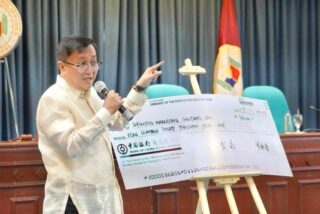AMMAN—Jordan’s King Abdullah II called for national unity on Sunday, two days after a man died and 160 people were injured in clashes between protesters and government supporters.
“The most important thing now is our national unity, which must not be touched,” the king told tribal leaders in the southern town of Petra, a major archaeological and tourist site.
“We need to stay away from any behavior or attitude that would affect our unity.”
The state-run Petra news agency quoted the king as saying that Jordan “is going ahead with political and economic reforms, strongly and enthusiastically. There is nothing that we fear.
“We understand the difficult circumstances and challenges in the country and the region, but we are optimistic about the future that we are trying to build,” he said.
On Friday, Khairy Jamil Saad, 55, died and 160 people were injured as police broke up a pro-reform protest camp set up near the interior ministry in Amman after 200 government supporters threw stones at 2,000 young demonstrators.
Saad’s family has said the man died after “receiving several blows to his body,” but the coroner said a post-mortem proved he died of heart failure.
It was the first death since the outbreak of pro-reform protests in Jordan three months ago.
The Islamist opposition and other groups, which called on Saturday for Prime Minister Marruf Bakhit’s ouster, have been urging sweeping political reforms, including an amended electoral law, leading to a parliamentary government and elected premier.
Parliament on Sunday rejected calls to limit the king’s powers to pave the way for a constitutional monarchy, which Bakhit has described as a “threat to Jordan’s survival.”
“The king takes his powers from the constitution and the lower house will make sure he remains powerful to preserve the Jordanian identity and the constitution,” it said in a statement carried by Petra.
“The lower house of parliament calls for dialogue and stresses the importance of protecting freedom of expression, but at the same time political blackmail is rejected.”



